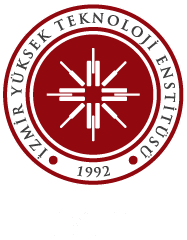Department Seminar (Immunology)
[:en]Title: Generation of Antibody Diversity in B Cells
Speaker: Assist. Prof. Hüseyin Sarıbaşak
Şifa University, Department of Medical Biology
Date: Friday, May 17, 2013
Time: 11:00 am to 12:00 noon
Venue: Faculty of Science, A-110
Host: Assist. Prof. Ayten Nalbant
Abstract: We are under the threat of myriad of antigens that may trigger an immune response upon entry into the body. Successful recognition of these antigens by a diverse pool of antibodies is important to avoid pathological outcomes. However, the initial repertoire of antibodies which is produced in bone marrow is not sufficient for a specific response. Thats why B cells evolved several elegant genetic mechanisms to respond vast number of antigens. These mechanisms include somatic hypermutation as well as gene conversion for affinity maturation and class switch recombination for subsequent effector functions. Even though the resolution of these pathways are somewhat different, they are surprisingly governed by one single protein, activation induced cytidine deaminase (AID). AID transforms cytosines into non-canonical uracils in immunoglobulin genes and how these uracils result in specific pathways are under active research. Dysregulated AID is on the other hand related with several abnormalities including B cell lymphomas, autoimmunity and digestive tract organ cancers. Hence tight control of AID is essential during the generation of effective antibodies.[:tr]Başlık: Generation of Antibody Diversity in B Cells
Konuşmacı: Assist. Prof. Hüseyin Sarıbaşak
Şifa University, Department of Medical Biology
Tarih: Friday, May 17, 2013
Saat: 11:00 am to 12:00 noon
Yer: Faculty of Science, A-110
Ağırlayan: Assist. Prof. Ayten Nalbant
Özet: We are under the threat of myriad of antigens that may trigger an immune response upon entry into the body. Successful recognition of these antigens by a diverse pool of antibodies is important to avoid pathological outcomes. However, the initial repertoire of antibodies which is produced in bone marrow is not sufficient for a specific response. Thats why B cells evolved several elegant genetic mechanisms to respond vast number of antigens. These mechanisms include somatic hypermutation as well as gene conversion for affinity maturation and class switch recombination for subsequent effector functions. Even though the resolution of these pathways are somewhat different, they are surprisingly governed by one single protein, activation induced cytidine deaminase (AID). AID transforms cytosines into non-canonical uracils in immunoglobulin genes and how these uracils result in specific pathways are under active research. Dysregulated AID is on the other hand related with several abnormalities including B cell lymphomas, autoimmunity and digestive tract organ cancers. Hence tight control of AID is essential during the generation of effective antibodies.[:]
